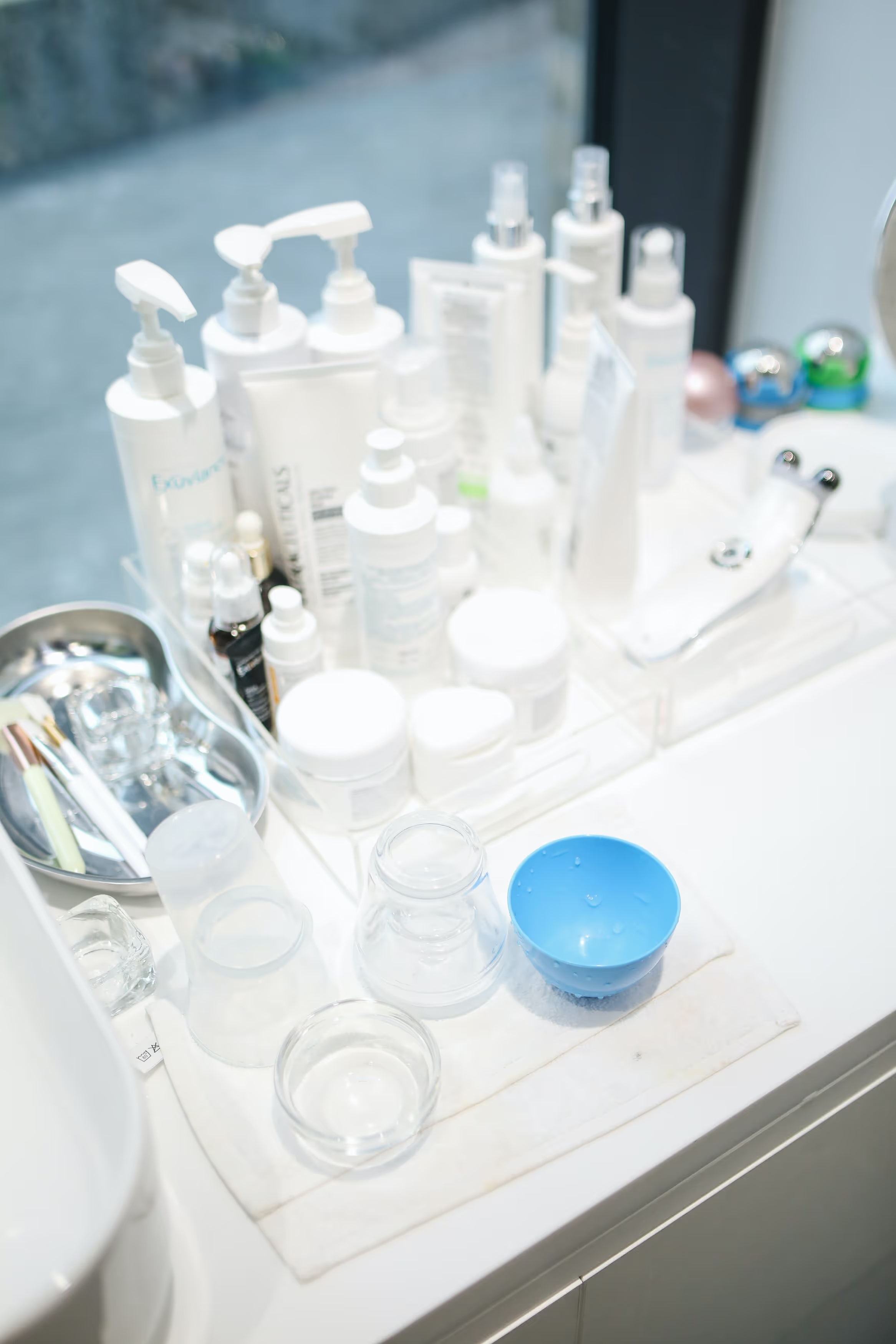Missed Part 1? Catch up here!
A biohacker’s wet dream
Bryan Johnson seems poised to achieve what every self-respecting bio-hacker dreams of doing. He empirically tests the most scientifically promising foods, supplements and cosmetics, not to mention sleep techniques and implements, gym routines, and many more longevity tools.
And all the while, virtually every important organic and systemic parameter is being tested. Indeed, when reading the protocols on his website or viewing his videos, it becomes clear that no effort or test is spared – from fMRIs to complex blood panels and performance tests. All this in hopes of significantly rejuvenating his individual organs as well as his overall metabolism.
And rejuvenate he does, as he tirelessly boasts about it on various channels… even if some may question if the effort invested is in line with the results obtained.

One man’s journey: from personal anecdote to global longevity?
Of course, one can argue that this personal experiment provides, at best, anecdotal evidence and that physiologies react very differently to lifestyle interventions according to phenotypes such as gender, age or race, as well as individual environments and biographies. But Johnson is aware of this shortcoming and by transparently publishing his protocols and test results, he hopes to encourage and recruit a critical mass of motivated individuals to attempt a similar journey in the hopes of creating a much more comprehensive body of evidence.
This is what makes his move particularly compelling in a medical system that takes a cookie-cutter approach to individual health and tends to be disease-, rather than prevention-based. In this context, even a small-scale investigation of lifestyle interventions represents an unusual and commendable endeavour. So, you may not like Bryan Johnson’s stiff elfin appearance, you may resent his dogged pursuit of anti-ageing or his elitist approach, but he does seem to practice what he preaches. And some of his results could lead to promising hypotheses and maybe even surprising discoveries.

The Zeroth Principle
However, beyond the wish to transcend his own mortality, Johnson seems motivated by a much loftier goal (or is it fear?). Indeed, as he perceives it, the current intrusion of artificial intelligence (AI) into our lives will render many of our previous goals as well as our current selves irrelevant. In fact, he sees AI as such a disruptive power that life goals and selfhood as we know them are no longer foreseeable.
What Johnson suggests, instead, is that our duty in this swiftly changing landscape is to be prepared for just about anything. His personal philosophy, the so-called “Zeroth principle”, is loosely based on a Schopenhauer aphorism that states: Talent hits a target no one else can hit; Genius hits a target no one else can see. As a new health “Messiah”, Johnson is willing to lay his bodily health, which seems to have become the sum of his selfhood, onto the sacrificial altar of a progressivism without pre-defined goals.

Saving humanity through mindlessness?
Hence, Johnson’s recipe against loss of control (and death as its ultimate expression) is not the transcendental neo-Hindu or -Buddhist mindfulness, hitherto preached by wellness apostles, but a form of mindlessness – letting technoscience guide him through an optimised body into a future of endless possibilities.This seems to cement a perspective on health that is purely biological – some would argue materialistic or even mechanistic – as opposed to the more holistic health models, which have emerged in postwar years and take e.g, social, economic and psychological factors into account.
Johnson’s emphasis on purely mechanistic health as the bedrock of his wellbeing appears to turn him into a healthist offshoot of what the French phenomenologist Merleau-Ponty described as corporeity – the body-centredness of all perception, hence experience and consciousness. For Johnson, optimised bodily health seems to automatically lead to optimal wellbeing-in-the-world. Moreover, he contends that this goal-alignment within the body, made possible by the likes of Blueprint, is a prerequisite for human cooperation and the very possibility of a harmonious common future on planet Earth.
Producing the self
Witnessing Bryan Johnson’s approach to health, hence future management, a subtle new brand of normative morality emerges, one that is built upon the notions Sijsling and her colleagues have already identified. Here, however, autonomy, responsibility and the possibility of self-improvement are not dictated by a particular spirituality or a unified political ideology. But they do not emerge in a cultural vacuum, either. Instead, they have become the pillars of a potentially coercive neoliberal selfhood that must be constantly produced – at great cost and effort.
Hence, what is troubling in Johnson’s transhumanistic approach is the complete delegation of agency that this particular brand of self-surveillance entails. Johnson no longer trusts his own mind at all. In fact, he makes it responsible for his previous mental and physical sickness and he never tires of affirming how great he feels now that he follows the Blueprint regimen. In a recent interview, he even goes so far as to pronounce the mind dead.

Deus ex machina?
But the boundless faith Johnson places in an extreme form of scientific reductionism as well as emergent AI technologies, at the expense of all other human-based faculties, tends to obscure the fact that AI is a compound product not only of human intelligence but also of human choices, hence also human biases and limitations. This can make AI particularly fallible – with consequences more far-reaching and potentially perilous than those entailed through individual or even group error.
In the case of AI, however, the debate over technological trajectory is still far from settled. Technological determinism may seem to be having a moment due to the sheer scope and intrusiveness of AI – entailing not just unintended and potentially irreversible consequences, but maybe even the possibility of a lock-in. Nevertheless, we are not there yet! And because AI is still being shaped by humans, it can (and probably should) be curbed and regulated through human intervention. Indeed, AI’s development is currently neither (fully) autonomous nor need it be uni-directional. We can still decide in what areas it makes sense to implement it, and in which it does not.
So, while AI may offer very attractive and useful health perspectives in e.g., evidence-based or preventive medicine, it is not devoid of flaws and dangers. Indeed, if they have taught us anything, the histories of science and technology are replete with examples of experiments gone badly wrong – primarily because human intuition and common sense were temporarily silenced by a misplaced sense of awe, not to mention greed. Hence, we need not subscribe wholesale to Johnson’s or any other AI prophet's “deus ex machina” perspective.
Healthism contra rogue human
When it comes to the human pursuit of health, Johnson actually displays a deep ambivalence. He wants to fire the human but is obviously hungry for human contact and approval, as illustrated by a number of videos featuring healthful fellowship with his father and one of his sons, whom he seems to have converted to his lifestyle. He also repeatedly hosts brunches at his home to convince friends about the benefits of his protocol. And then, there are all the interview invitations he readily accepts…

But by divorcing the “human” from “health”, Johnson paradoxically risks alienating the very humans he seeks to convince. Because beyond the identification he may be able to foster by describing his tribulations, he cannot single-handedly discount the human need for choice and connection through pleasure – however destructive these may prove. It is this very human inclination that makes the ultimate success of an “algorithm that takes better care of ourselves than we can” very unlikely. While most of us would welcome the discovery of an anti-ageing panacea and some of us are even prepared to invest a lot of time, money and energy in healthy longevity, few of us are ready to entirely give up our free will or the illusion thereof.
Last but not least, even though Johnson would have us believe that he has successfully rebirthed himself as a rootless post-human potentiality, his rabid brand of healthism is very much the product of a particular culture of American self-entrepreneurship. Bettering and lifting the self beyond the strictures of ethnic, economic, social and psychological belonging is the very essence of the self-made wo/man myth. One cannot help but wonder how Bryan Johnson would fare, had he been born into, say, a Mediterranean culture that elevates sensuous social interaction to quasi-religious heights… Somehow, it is difficult to picture the success of “Blueprint” and its dull menus in France or Italy. But even American health entrepreneurs can change their minds. Witness Tim Ferriss, who after successfully championing his own brand of quantified self-production for years, recently stated that “not everything that is meaningful can be measured”.
Human Longevity à la Carte
So, where does all this leave you if you have neither Bryan Johnson’s means nor his mindset but still want to access healthy longevity? Cultivating longevity does not mean you have to invest huge amounts of time, money or effort to make a real difference. Indeed, small but consistent lifestyle interventions in nutrition, movement, sleep, stress reduction and supplementation can make a significant difference. A difference which is concretely captured by a biological age test such as epiAge.
When it comes to diet, you can e.g., start by cutting down on sugar, junk food, and alcohol while cooking fresh and nutritious meals from seasonal ingredients (mostly veggies and fruit) as well as drinking plenty of water. In parallel, introducing short but regular sporting activities such as running, biking or swimming as well as basic strength training will help you compensate for long days spent sitting in front of a screen. Reviewing your sleep habits and your sleep environment is also a crucial step for regeneration. Try to aim for at least a couple of “early nights” a week to give your body the time it needs to repair and integrate powernaps into your routine. Otherwise, depending on your circumstances, stress may be difficult to ban completely from your life, but you can aim to contain it, by taking breaks from an otherwise hectic schedule. Opening the window and deep-breathing for a few minutes, a small meditation on a park bench, walking the dog in the forest, a soothing book or podcast before you fall asleep, saying “no” to an umpteenth professional or social gathering: these micro-measures can make a big difference – if you apply them consistently. Last but not least, if you notice that, despite those changes, your body is still struggling in certain areas, consult with your physician who may recommend additional tests and/or useful supplements.

All this does not mean that you cannot make exceptions. We actually recommend making conscious exceptions: so, go for that one drink or this piece of chocolate cake but savour every sip or morsel. Indeed, just as significant as a healthy routine, if not more so, is actually living and enjoying life with friends and family, travelling, learning new things, immersing yourself in art, culture or spirituality as well as actualising your dreams. These are the measures that yield joy and true satisfaction, providing a much more plausible path to a long but also fulfilling life – beyond the shackles of strict health rules and protocols.
So while we wish Bryan Johnson all the best with his endeavour, we also hope he will still get to enjoy an amazing home-cooked meal in Palermo or a lazy “cheat day” with friends on the Côte d’Azur! Ironically, this might make both him and his lifestyle much more attractive to a larger audience…
In the meantime, we invite you to tailor your longevity goals to your personal needs and priorities while focusing on a fulfilling life. epiAge will be happy to assist you in monitoring and celebrating your milestones, as reporter Dr Anna Acker recently demonstrated it on German TV. In just 8 weeks of gentle lifestyle tweaking, she managed to shed 2 kilos and 4 biological years, while continuing to lead a normal life!
Sources
all digital sources have last been accessed on 07.07.2022, unless otherwise stated.
Bryan Johnson’s Website: https://www.bryanjohnson.co/
Subpage on his Blueprint experiment: https://blueprint.bryanjohnson.co/#bryan-johnsons-blueprint
Videos by or with Bryan Johnson (selection):
Why I Am Spending Millions To Be 18 Again: https://www.youtube.com/watch?v=NdZHo3xuZvw#, 30.01.2023
Will My Son’s Blood Make Me Younger? https://www.youtube.com/watch?v=8l3nfzEYSwI, 22.05.2023
Founders' Stories: Braintree's Bryan Johnson: https://www.youtube.com/watch?v=z-5vnoyU2u0, 17.03.2017
The Anti-AgingProtocol to REVERSE AGING & Live Over 120+ YEARS OLD | Bryan Johnson (Interview with Tom Bilyeu): https://www.youtube.com/watch?v=j_AtQ6N4jQc&t=2090s, 09.02.2023
Overcoming Depression | Bryan Johnson and Lex Fridman: https://www.youtube.com/watch?v=HBCxcxUR3oU, 24.05.2021
Bryan Johnson Thinks AI SHOULD Run Your Life | Lifespan News with Emmett Short, https://www.youtube.com/watch?v=Jd-YqIsut9Y&t=2s, 04.06.2023
++++
Righi, Andrea, The Other Side of the Digital: The Sacrificial Economy of New Media, Minneapolis: University of Minnesota Press, 2021.
Bingle, Gwen, “Anti-Ageing and the Portrait in the Attic: Dorian Gray Syndrome or Legitimate Science?”, epiAge Blog, 20.12.2020. Online: https://www.epi-age.de/blog/anti-ageing-and-the-portrait-in-the-attic
Bingle, Gwen, Under the Sign of the Body: Technology, Commodification and Embodied Consciousness in Late 20th Century Germany, Technische Universität München, Fakultät für Wirtschaftswissenschaften, 2012. Online Dissertation: https://mediatum.ub.tum.de/doc/1094737/1094737.pdf
Héder, Mihály. “AI and the resurrection of Technological Determinism.” Információs Társadalom XXI, no. 2 (2021): 119–130. https://dx.doi.org/10.22503/inftars.XXI.2021.2.8. Online: https://inftars.infonia.hu/pub/inftars.XXI.2021.2.8.pdf
Haden, Jeff, “Tim Ferriss Is No Longer Living the Tim Ferriss Lifestyle. Neither should you because success isn't always about efficiency and output.”, Inc., 09.05.2023. Online: https://www.inc.com/jeff-haden/tim-ferriss-is-no-longer-living-tim-ferriss-lifestyle-neither-should-you.html
Judith E. Carroll, Aric A. Prather, “Sleep and biological aging: A short review”, Current Opinion in Endocrine and Metabolic Research, Volume 18, 2021, 159-164, ISSN2451-9650, https://doi.org/10.1016/j.coemr.2021.03.021. Online: https://www.sciencedirect.com/science/article/pii/S2451965021000466?via%3Dihub
Giudici, K.V. “Nutrition and the Hallmarks of Aging”. The Journal of Nutrition, Health and Aging. 25, 1039–1041 (2021). https://doi.org/10.1007/s12603-021-1686-3. Online: https://link.springer.com/article/10.1007/s12603-021-1686-3
Rajado AT, Silva N, Esteves F, Brito D, Binnie A, Araújo IM, Nóbrega C, Bragança J, Castelo-Branco P; ALFA Score Consortium. How can we modulate aging through nutrition and physical exercise? An epigenetic approach. Aging (Albany NY). 2023 Apr 20;15(8):3191-3217. doi: 10.18632/aging.204668. Online: https://www.ncbi.nlm.nih.gov/pmc/articles/PMC10188329/
Jokai, M., Torma, F., McGreevy, K.M. et al. DNA methylation clock DNAmFitAge shows regular exercise is associated with slower aging and systemic adaptation. GeroScience (2023). https://doi.org/10.1007/s11357-023-00826-1. Online: https://link.springer.com/article/10.1007/s11357-023-00826-1
Sae-Lee C, Corsi S, Barrow TM, Kuhnle GGC, Bollati V, Mathers JC, Byun HM. “Dietary Intervention Modifies DNA Methylation Age Assessed by the Epigenetic Clock”. Molecular Nutrition & Food Research. 2018 Dec; 62(23):e1800092. doi:10.1002/mnfr.201800092. Online: https://onlinelibrary.wiley.com/doi/epdf/10.1002/mnfr.201800092
Loredana Verdone, Micaela Caserta, Tal Dotan Ben-Soussan, Sabrina Venditti, “On the road to resilience: Epigenetic effects of meditation”, in: Gerald Litwack (Ed.), Vitamins and Hormones, Cambridge MA: Academic Press/Elsevier, Volume 122, 2023, 339-376.
Dr. Anna Acker’s longevity experiment was featured on the “Punkt 12” programme on German-speaking TV Channel RTL+, 03.07.2023. Online: https://annaacker.com/tv/
Main illustration
Mikhail Nilov / pexels
 Back to all posts
Back to all posts